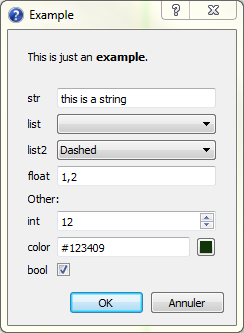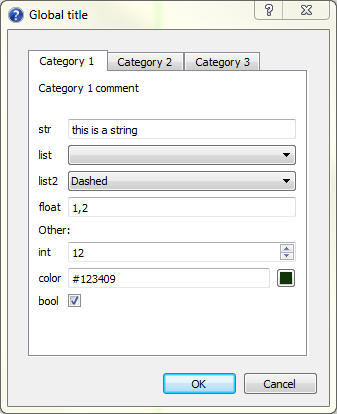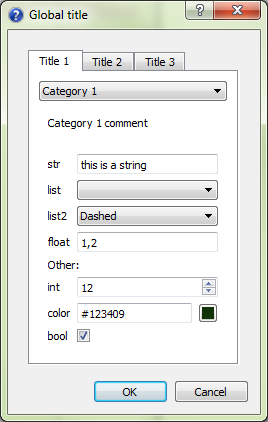Python module providing the most easy way to create Qt form dialogs and widgets
With formlayout, generating a form is very easy:
- To show a dialog box, just call the
feditfunction. - To set-up the form dialog, simply use lists to pass parameters (field names, default values, ...).
- To embedd
formlayoutin your own library, just copy theformlayoutautoconsistent single script (zero dependency, except Qt itself).
See documentation for more details (mostly examples) on the library and changelog for recent history of changes.
Graphical user interface (GUI) libraries are usually designed to address issues which are far more complex than a simple dialog box. As a consequence, generating simple form layouts or dialogs is generally not as easy as it should be: the feature-line count ratio is very low for the most simple dialog boxes.
Within this context, formlayout provides the absolute minimum API required
to create form dialog boxes (or layouts). To show a dialog box, simply call
the fedit function. To set-up the dialog box, just use lists to pass the
required parameters (field names, default values, ...).
With formlayout, generating a form is very easy.
Here is a simple example (more are included in source package):
from formlayout import fedit
datalist = [('Name', 'Paul'),
(None, None),
(None, 'Information:'),
('Age', 30),
('Sex', [0, 'Male', 'Female']),
('Size', 12.1),
('Eyes', 'green'),
('Married', True),
]
fedit(datalist, title="Describe yourself", comment="This is just an <b>example</b>.")The only requirements are Python and Qt:
- Python >=2.6 or Python >=3.2
- PyQt4 >=4.4 or PyQt5 >= 5.5 or PySide
Installation from the source package is straightforward:
python setup.py install






